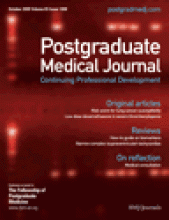-
Views
-
Cite
Cite
C J Fowler, J N Panicker, M Drake, C Harris, S C W Harrison, M Kirby, M Lucas, N Macleod, J Mangnall, A North, B Porter, S Reid, N Russell, K Watkiss, M Wells, A UK consensus on the management of the bladder in multiple sclerosis, Postgraduate Medical Journal, Volume 85, Issue 1008, October 2009, Pages 552–559, https://doi.org/10.1136/jnnp.2008.159178
Close - Share Icon Share
Abstract
Bladder symptoms in multiple sclerosis (MS) are common and distressing but also highly amenable to treatment. A meeting of stakeholders involved in patients’ continence care, including neurologists, urologists, primary care, MS nurses and nursing groups was recently convened to formulate a UK consensus for management. National Institute for Health and Clinical Excellence (NICE) criteria were used for producing recommendations based on a review of the literature and expert opinion. It was agreed that in the majority of cases, successful management could be based on a simple algorithm which includes using reagent sticks to test for urine infection and measurement of the post micturition residual urine volume. This is in contrast with published guidelines from other countries which recommend cystometry. Throughout the course of their disease, patients should be offered appropriate management options for treatment of incontinence, the mainstay of which is antimuscarinic medications, in combination, if necessary, with clean intermittent self-catheterisation. The evidence for other measures, including physiotherapy, alternative strategies aimed at improving bladder emptying, other medications and detrusor injections of botulinum toxin A was reviewed. The management of urinary tract infections as well as the bladder problems as part of severe disability were discussed and recommendations agreed.




